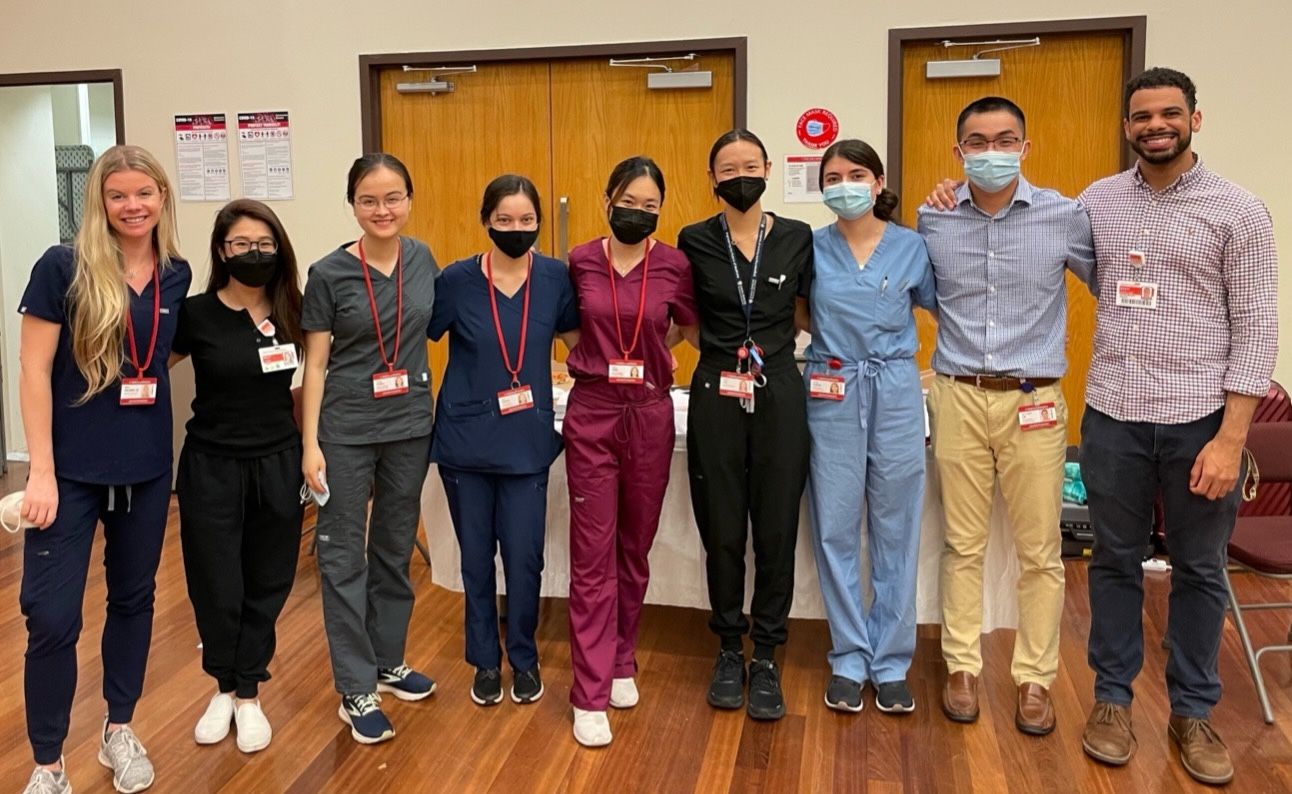Kress Vision Program
The New York Presbyterian Hospital Kress Vision Program is a grant-funded program that provides free vision care and services to members of the community that do not have access to health insurance. Kress Vision provides preliminary vision screenings, subspecialty follow-up, prescription eyewear, medication coverage, surgical care, and much more to individuals that qualify for the program. Since 2022, the Kress Vision Clinics have been staffed by NYP/WCM Ophthalmology Residents. “Kress has been my favorite part of residency,” noted 2024-2025 Chief Resident Dr. Sayyada Hyder. “Anything can walk through those clinic doors, from simple to complex. On a given day, we might see proliferative diabetic retinopathy, end stage glaucoma, retinal vasculitis, and Morgagnian cataracts. As a PGY4, I work closely with a PGY2 resident to teach and provide the best care possible for these at-risk patients. When necessary, we manage further care with our subspecialty faculty. It's the perfect mix of resident autonomy and equitable patient care. Working a team with PGY2 and helping them triage and learn from these complex cases is a great learning experience for all of us.”
Eye2Eye
Eye2Eye is a student-run, mobile outreach clinic that aims to improve access to vision services among New York City residents. Eye2Eye was established in 2016 by students at Weill Cornell Medical College and works in conjunction with Heart2Heart, a mobile diabetes and cardiovascular disease outreach clinic, to provide free vision and medical screening to underserved NYC communities. By providing NYC residents with free eye exams and funduscopic photography, the organization aims to identify individuals experiencing deteriorating vision or unknown ocular pathologies. Individuals in need of further ophthalmic care are then referred to the Kress Vision Program, a free comprehensive eye care program for uninsured New Yorkers. As a student-run organization, Eye2Eye provides medical students with a unique opportunity to not only participate in ophthalmology early in their medical careers, but also to serve the members of their community who need it most.
At monthly screening events across NYC, Weill Cornell Ophthalmology residents, fellows, and faculty assist medical students in performing basic eye examinations and interpret funduscopic images. A Kress Vision Program coordinator, Sally Chow, MPH, is also present to enroll eligible patients into the program. Eye2Eye events are held at community sites and may serve up to 30 individuals on a given day. “Volunteering with Eye2Eye is a fantastic way to serve members of our community, and our partnership with the Kress Vision Program ensures that the patients we see get the care they need, free-of-charge,” states Alina Husain, a fourth-year medical student and former leader of the organization. Wyatt Smith, a PGY-4 resident at Weill Cornell adds, “Eye2Eye has been one of my favorite parts of residency. It’s a great opportunity to teach medical students, engage with underserved communities across New York City, and connect patients to our excellent facilities at Weill Cornell. It’s incredibly rewarding to not only help students explore their passion for ophthalmology but also to be able to plug patients into the Weill Cornell system despite their socioeconomic status.”

Volunteers at an Eye2Eye event in NYC. Alina Husain, fourth-year medical student is pictured two from the right. Wyatt Smith, PGY-4 resident, is pictured on the far right.
International Ophthalmology
We are proud to offer residents demonstrating a commitment to global ophthalmology the opportunity to participate in international ophthalmology mission trips alongside our dedicated full-time and voluntary faculty. These experiences allow residents to provide vital eye care to underserved populations around the world, gaining exposure to a wide range of clinical and surgical cases in resource-limited settings. Working closely with faculty, residents not only sharpen their clinical skills but also learn to adapt to different healthcare environments and challenges. These mission trips emphasize the importance of global health, cultural sensitivity, and the impact of providing equitable care to those in need. By participating in these initiatives, residents make a meaningful difference in the lives of patients while further developing their skills, compassion, and understanding of the global burden of eye disease. In recent years, faculty and residents have traveled to Mongolia, Tanzania, Jordan, and other locations with Dr. Charles Cole, Dr. Grace Sun, Dr. Gary Lelli, and with independent humanitarian organizations.

